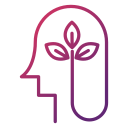Practice Blueprint: A 10-Week Plan for Cognitive Gains
Start with five minutes daily, immediately after a consistent cue like brushing teeth. Sit comfortably, follow your breath, count to ten, and restart. Keep a one-line log. Invite a friend to join for accountability, and tell us your cue so others can borrow good ideas.
Practice Blueprint: A 10-Week Plan for Cognitive Gains
Increase to ten or fifteen minutes. Add one minute of note-taking after each session: distractions noticed, emotions felt, clarity gained. Once weekly, do a quick focus drill, like reading a page without re-checks. Post your best tip for staying present when notifications tempt you.


